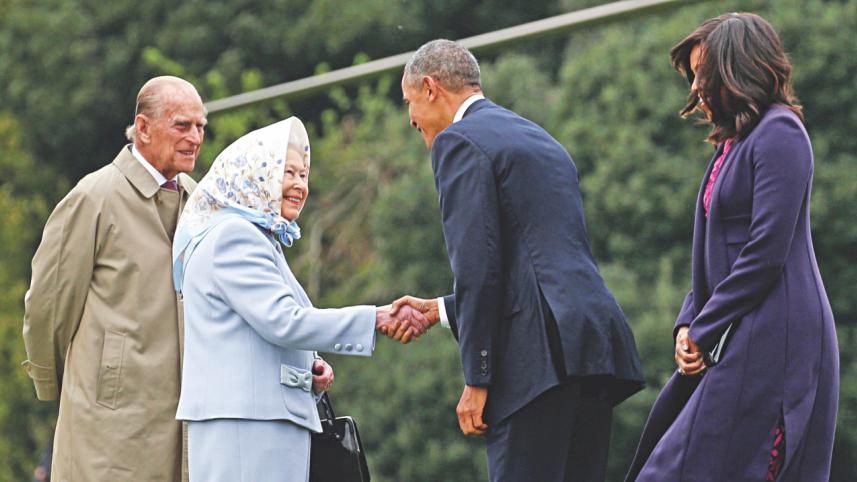Stay in EU, Obama urges Britain

US President Barack Obama yesterday appealed directly to British voters to remain in the European Union, saying membership had magnified Britain's place in the world and made the bloc stronger and more outward looking.
Obama, who opinion polls show is popular in Britain, applauded Britain's EU membership which he said had helped make the world freer, richer and better able to tackle everything from migration to terrorism.
Invoking the interlinked history of the United States and Britain and the tens of thousands of Americans lying in European war graves, Obama implored voters to weigh the benefits of membership ahead of a June 23 referendum.
"The European Union doesn't moderate British influence - it magnifies it," Obama wrote in The Daily Telegraph, a eurosceptic British newspaper.
"As your friend, I tell you that the EU makes Britain even greater," the headline of Obama's article read.
His remarks, which led television news broadcasts in Britain, undercut one of the most passionate arguments of the opponents of EU membership: that Britain could prosper on an equal basis with global powers such as the United States.
A spokeswoman for Prime Minister David Cameron welcomed Obama's intervention, but the president's comments drew scorn from opponents of Britain's EU membership.
New York-born London Mayor Boris Johnson, a leader of the "Out" campaign who hints he wants Cameron's job, derided Obama's arguments in a newspaper column that referred to "the part-Kenyan President's ancestral dislike of the British empire".
John McDonnell, the opposition Labour Party's finance policy chief, called Johnson's remarks "dog-whistle racism".
The White House declined to comment. Obama said Britain's closest ally wanted it to remain in the club it joined in 1973 to bolster trade and strengthen the 28-member bloc, which Washington views as a pillar of stability in the post-World War Two era.
The US government, and many US banks and companies, fear a Brexit would cause market turmoil, diminish the clout of Washington's strongest European ally, hurt London's global financial hub status, cripple the EU and weaken Western security.



 For all latest news, follow The Daily Star's Google News channel.
For all latest news, follow The Daily Star's Google News channel.
Comments